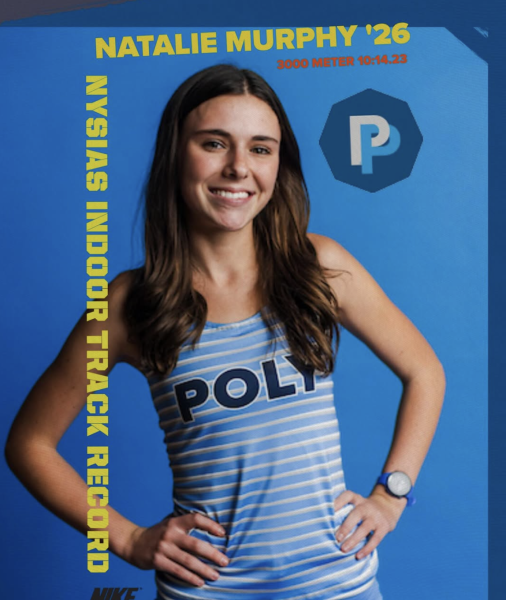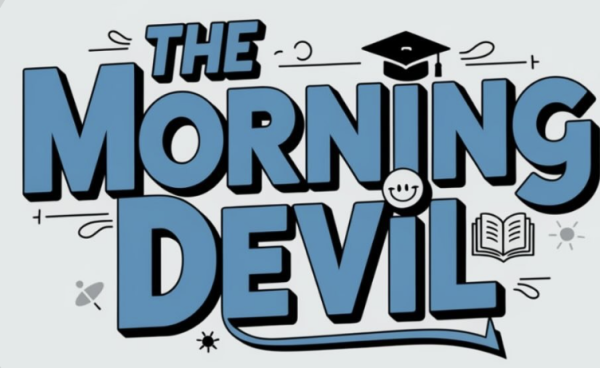Not Just in Your Head
A look inside the mental health epidemic plaguing teens.
An excerpt of this profile was originally published in the February issue of The Polygon.
Hannah Gross, 17, has gotten the same Starbucks coffee for the past five years.“A blonde vanilla latte, a blonde vanilla latte, a blonde vanilla latte…” she repeats continuously in her head as she waits in line. She plans what she is going to say meticulously, but then the barista asks her a question, “What milk do you want?” She knows she wants regular milk, but at that moment she questions absolutely everything she knows. She freezes.
She walks onto her yellow school bus every morning like she has for almost her entire life. Her bus driver asks her name as she gets on and she panics. She knows her name. She forgets if he knows her by only her first name or her first and last name. What if he says something if she says the wrong thing? What will he think of her?
She arrives at school promptly at 8:30 AM every day, her Starbucks coffee in a thermostat in her bag. She feels her bag every 2 minutes checking if it spilled. She is not afraid if the coffee spills and gets her books wet, but what if someone says something to her about it? What will they think of her? Will they forever think of her as the girl that spilled coffee in her bag?
She diligently completed all her homework on time and knows that she is prepared for class. But what if she isn’t? What if she forgot to answer a homework problem? Did she bring her calculator? Panic invades her mind as she searches her bag frantically for something she knows is there as she saw it minutes prior.
She sits in class paying attention and she knows what is going on nearly 100 percent of the time. Her teacher calls on her when she didn’t raise her hand. She freezes even though she knows the answer perfectly. Hannah’s eyes and mind look blank from the outside, but inside her head she is thinking at a million miles per minute. She stutters as she says ‘I don’t know,’ but she knows the answer perfectly. What if she said it wrong? What would everyone think?
She has a test later that day that she studied weeks for. The exam is placed in front of her. She stares at it drawing her pencil to the first question. She knows the answer right away and writes it down. She reads her answer over and erases it. She then rewrites it the same as before. However, she still isn’t pleased. She continues the rewriting and erasing process until her paper has a hole in it. Pieces of her eraser cover her desk as she starts breathing heavily as her leg shakes profusely under the table. Her teacher comes over and asks if she is okay, but she is unable to answer.
Hannah Gross suffers from several anxiety disorders including, general anxiety, social anxiety and a panic disorder. She recalls her anxiety issues starting in early childhood,“I would be in normal situations as a little kid and I would just get panicked. I wouldn’t let my mom talk in situations because I found it embarrassing. At first I was like ‘oh I was just a kid that was embarrassed’ but looking back I was just so anxious. I would get panic attacks about really normal things. Before any change or transition I would get a crying, panic attack.” She went through the years of her childhood and early teen years constantly anxious with no explanation. Gross got diagnosed with her disorders at age 15, during the peak of the COVID 19 pandemic. To Gross get diagnosed, “was very validating. When I realized I had an anxiety problem and an actual disorder that I could be medicated for and treated for and that other people had too it was very validating and not just in my head. It validated my feelings that they were more than just a casual nervousness.”
Gross is not only facing anxiety, but people not believing that it is a real disorder. “It is just in your head,” and “just relax” are phrases that haunt her on a daily basis. People fail to recognize that an anxiety disorder is very real and does not compare to “casual nervousness” as Gross said. The feeling of being anxious or occasional anxiety is something everyone feels; it can be anxiety about a test or an interview, but is overall explained by one specific thing happening. Anxiety disorder is an unexplained anxiety not relating to a specific event as described in an article by the National Institute of Mental Health (NIMH.)
Anxiety disorders are also on the rise, especially in teens as recent studies show. A study in 2019 by the NIMH showed, “that nearly 1 in 3 adolescents between ages 13 and 18 will experience an anxiety disorder.” The study also showed that in the five years between 2007 and 2012, anxiety disorders in teens increased by 20 percent.
One of the possible explanations for this recent rise is social media. Gross notices the mental toll social media has on her saying, “There is this reaction that people get with social media and you expect yourself to look a certain way and want to change yourself to be perfect under social media standards.” The bright light of her phone hurts her eyes, as she sits at night scrolling through Instagram and Tik Tok in a stream of what seems to be endless content, comparing herself to everyone. A study done by the Pew Research Center it was found that, “45% of teens aged 13 to 17 said they use the internet ‘almost constantly.’” Gross believes the pressure to be perfect is elevated by social media making teens believe that they have to look a certain way and live up to a certain standard that is continually being raised by influencers. The other theories for increased anxiety show an overall increased pressure to succeed among teens, especially when it comes to school work.
Gross doesn’t believe that her anxiety is completely due to school, but she did notice something about it this summer. She says that, “when I go to sleepaway camp away from everything it’s not nearly as bad. Now I find myself the most stressed and focused with school work and I have been having the worst and most frequent panic attacks I have ever had in my life.” At school, she feels the pressure to be perfect, especially in her academics and she is willing to do anything to get better. She states, “If it means getting 4 hours of sleep to be the best I will do it.”
Gross is not the only one facing this severe perfectionism, which in her case, is worsened by her medically diagnosed anxiety. A recent study done by the American Psychological Organization found that, “recent generations of young people perceive that others are more demanding of them, are more demanding of others, and are more demanding of themselves.” The scientists behind this study reviewed and collected 41,641 responses among American, Canadian and British college students who all completed the same test between the years of 1989 and 2016. The scientists found, “that levels of self oriented perfectionism, socially prescribed perfectionism, and other-oriented perfectionism have linearly increased.” This increased pressure is scientifically proven to be on a rise and is negatively impacting teens like Gross.
The mental health epidemic among Gen Z/teenagers today is not one to be taken lightly. Gross is one case among the masses and too many other teens can relate to her. She goes through every day wanting to be flawless and seen as flawless, whether it be saying the perfect thing to the Starbucks barista or acing every assessment.
Gross lays in bed every night, meticulously reflecting on everything she did that day. The hum of her heater and the sound of David Bowie’s voice fill the void of silence that exists in her bedroom. She thinks of the math test she had earlier, going over every question on the exam, her mind spinning into oblivion. Her cream colored ceiling fades away as her eyes shut for a mere 5 hours of sleep. She soon wakes up to do it all over again.




























Orli • May 15, 2023 at 2:50 pm
I agree